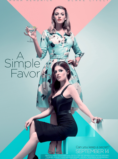
The Oscars have a much bigger problem than Will Smith
With her win for Best Supporting Actress, Afro-Latina Ariana DeBose became the first openly queer woman of color to nab one of the film industry’s most coveted awards in an acting category. But if you think her win, and other pro-LGBTQ speeches during the show, mean Hollywood has fundamentally changed, you’re wrong.
Hollywood still has a gay problem.
For decades, heterosexual and cisgender actors have built or capped their careers by playing LGBTQ characters to great acclaim. Think Tom Hanks bravely agreeing to play a gay man dying of AIDS in “Philadelphia” or Sean Penn subverting his macho reputation as a gay political trailblazer in “Milk.” This career strategy continues to pay off. Benedict Cumberbatch’s two Academy Award nominations for Best Actor, including this year for “The Power of the Dog,” were for playing a gay man. Two of Penélope Cruz’s four Academy Award nominations, for her work in “Vicky Cristina Barcelona” and this year’s nomination for “Parallel Mothers,” were for playing queer women.
But the career boost does not work in reverse. Openly LGBTQ actors generally do not win acclaim for playing heterosexual, cisgender characters. No one is praising DeBose for “acting straight.” Indeed, DeBose is unusual because openly LGBTQ actors are generally not cast in Oscar caliber movies as queer or straight characters.
My center at the UC Berkeley School of Law systematically analyzed all Academy Award acting nominations since 1960. Our analysis of more than half a century of Hollywood’s most prestigious awards shows there is a huge gap between what Hollywood says and what it actually does when it comes to support for the LGBTQ community.
Overall, we found that in over 60 years, just nine openly LGBTQ actors have ever received an Oscar nomination — less than 1% of all nominations. Our research also found that of the 1,260 nominations in an acting category since 1960, just 69 were for LGBTQ roles and none of the 14 wins for those characters were by an LGBTQ actor. In fact, only two of the 69 queer roles nominated were played by an LGTBQ-identified actor. While the number of queer roles that have been nominated for an Oscar has increased since 2000, all of those roles were played by heterosexual actors.
This status quo is even more troubling when LGBTQ identity is juxtaposed with race. Hollywood has a long, sordid history of casting white actors to play people of color — the most controversial recent examples being casting Scarlett Johansson in 2017’s “Ghost in the Shell” and Emma Stone in 2015’s “Aloha” in Asian and Asian American roles. Fortunately, protests over “yellowface” in these films generally shut down this practice. After the racial uprising of 2020, media companies also began pulling old episodes of TV series that featured blackface off streaming services.
There are also encouraging signs that Hollywood has retreated from casting cisgender actors as transgender, after Johansson and Halle Berry abandoned trans roles following social media-fueled outcries. But this new consciousness has not been extended to gay, lesbian and bisexual characters. The contrast was palpable when Hank Azaria finally stepped back from voicing an Indian immigrant in “The Simpsons” in 2020. Within a few months, it was announced that Azaria, a heterosexual man, would play Apple CEO Tim Cook, who is openly gay.
Ideally, art — including film — should reflect back to audiences who we are and what we aspire to be. It has the potential to change opinions, instill values and translate human experience across geography and time. But the lack of LGBTQ roles and the industry’s aversion to casting LGBTQ actors in such roles telegraph to the public that the LGBTQ presence in society is inconsequential at best.
Without substantial queer roles embodied by queer people, this leaves the public with mainly examples of stereotypical LGBTQ portrayals that play on straight anxiety and use LGBTQ people for a cheap laugh. At a time where some states such as Florida are trying to stamp out any mention of gay and trans identities in schools, it is crucial that LGBTQ actors have the opportunity to represent the LGBTQ community in roles that meaningfully reflect our complex humanity.
Some might argue that a push for increasing LGBTQ roles and their casting with openly LGBTQ actors means that queer actors should be limited to roles that only reflect that identity. But doing so would limit these actors to a small fraction of all roles, which would not be true for white heterosexual and cisgender actors if that rule were applied to them. Moreover, such a rule would effectively pressure LGBTQ actors to remain closeted so they could have access to more opportunities, when queer people already face enough personal challenges with deciding whether to come out.
The public needs to see actual queer people on the screen in rich roles whether the characters are queer or not. More importantly, the LGBTQ community, especially LGBTQ children, needs to see itself portrayed in meaningful and diverse ways. When actors such as DeBose proudly own their identities on stage, they empower young queer people to envision an authentic and flourishing future for themselves.
Russell K. Robinson is the Walter Perry Johnson Professor of Law and faculty director of the Center for Race, Sexuality and Culture at the UC Berkeley School of Law.


